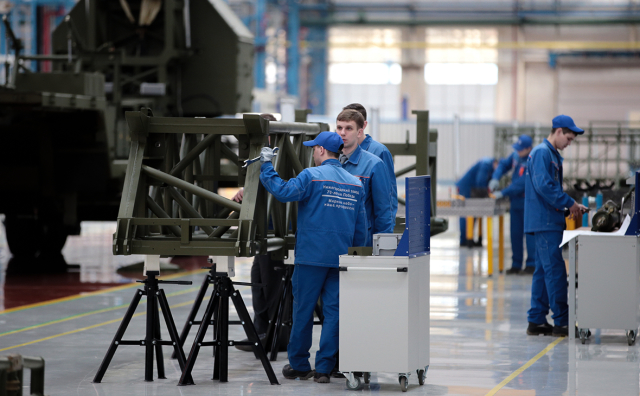Almaz-Antey is working on a hybrid car with the working name E-NEVA: it will use hydrogen and electricity as fuel. Unlike electric cars, hydrogen provides more mileage and lower CO2 emissions
Three sources familiar with the concern's activities told RBC that the Almaz-Antey aerospace defense concern is developing a hybrid car for civilian use. The working name of the new product is E-NEVA, where the first letter E is an abbreviation of electric, and NEVA is in honor of the main river of St. Petersburg.
According to one of the interlocutors of RBC, it is planned that there will be two complete sets of the fuel system. The first is a gas car with an electric transmission, which will be able to drive more than 1 thousand km at one gas station. The second is an electric gas car with a 52-liter gas fuel system and a battery with a capacity of 70 kW, which will provide a power reserve of 810 km and the ability to recharge from the power grid. Both variants of the configuration assume that the car will be able to accelerate to 100 km/h in 8.5 seconds, the maximum speed provided is 180 km / h.
Alexander Vedrov, Deputy General Director for Production and Technological Policy of Almaz-Antey, confirmed to RBC that the concern is working on creating a hybrid. Earlier, the concern presented a self-propelled electric platform that can be used both independently and as a basis for the production of vehicles of any category.
"We already have an electric car, it drives. But we followed the path of creating a hybrid, where the main engine is on gas. At the same time, the energy generated during the movement will be accumulated, and electric traction will become an auxiliary source of energy, the reserve of which will be enough for a certain number of kilometers. Without recharging, the hybrid will be able to travel more than 500 km, " Vedrov said.
According to him, in such a combination (electric motor and gas), only civilian use of the novelty is assumed, since "the military, as a rule, do not use gas-powered vehicles." Almaz-Antey did not comment on the investment in the project, as well as the timing of the release of the commercial version of the gas car, its possible cost and other details.
Almaz-Antey unites about 60 enterprises engaged in the development and production of weapons for air and missile defense, including the S-300, S-400 and S-500 anti-aircraft missile systems. It is 100% owned by the state. Since the end of 2016, all organizations of the military-industrial complex have been working to increase the share of civilian products in their portfolio - according to the instructions of the President of Russia, the share of such products should be at least 30% by 2025 and at least 50% by 2030.
Who else is working on hydrogen-powered cars
Among the main advantages of transport operating mainly on hydrogen, compared with electric, the head of the Moscow Department of Transport Maxim Liksutov in a column on RBC called the possibility of reducing CO2 emissions not only at the operational stage, but also in the full life cycle of transport. He noted that hydrogen refueling is able to provide the necessary mileage and can be carried out once a day, while the battery becomes significantly smaller in size, but remains needed as a buffer for electricity, the consumption of which is uneven during movement.
The E-NEVA will not be the first Russian gas car. At the end of spring, the Research Automobile and Automotive Institute (NAMI) presented a laboratory sample of the premium car Aurus, which runs on hydrogen. In early September, the head of the Ministry of Industry and Trade Denis Manturov told RBC that the hydrogen version of the Aurus will go into production and will be launched on the market after 2024. In his opinion," a certain motivation for consumers " to buy such a car may be the creation of infrastructure, including gas stations. According to the Concept approved by the government at the end of August for the development of the production and use of electric motor transport, such transport is also understood as vehicles running on alternative energy sources, including hydrogen. By 2030, at least a thousand hydrogen gas stations should appear in Russia. The state plans to co-finance the construction of plants for the production of hydrogen fuel cells and their components.
Mikhail Burmistrov, CEO of INFOLine-Analytics, pointed out that Almaz-Antey objectively has no opportunities to compete with the world's leading, and especially Chinese, manufacturers in the segment of electric vehicles, so the decision to switch to a hybrid project, which is niche, but due to this attractive for certain categories of consumers, is justified. "While we are talking about small-scale production (several thousand cars per year), investments may amount to several billion rubles, and it is probably too early to talk about the deployment of mass production (30-40 thousand per year or more) in the medium term," Mikhail Burmistrov said.
Authors: Anna Balashova, Inna Sidorkova, Timofey Dzyadko, Artem Korenyako

